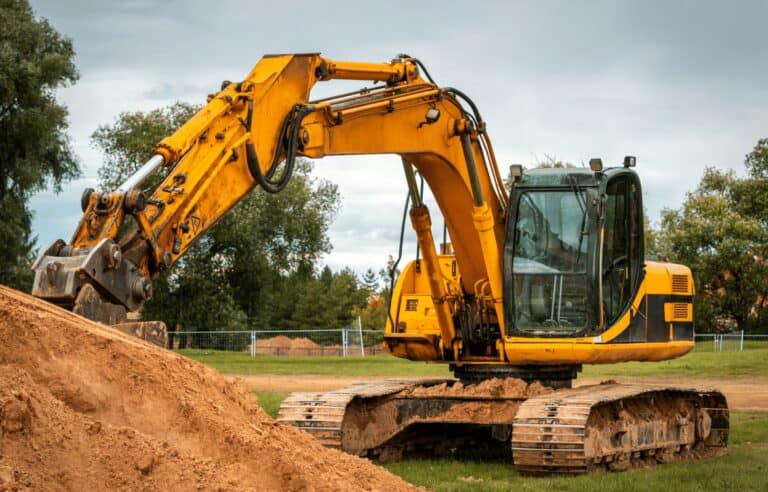.
In a city like Denver, CO, where elevation, climate, and soil types vary dramatically, preparing land properly is essential. Whether you’re developing in LoDo, renovating in Washington Park, or building near the foothills, excavation and grading lay the foundation for everything that follows. Without these critical first steps, even the best-constructed homes or buildings can face serious long-term problems.
At Legendary Demolition – Denver, CO, we specialize in excavation and regrading solutions that are tailored to the unique topography and climate of the Front Range. If you’re unsure whether your property needs help, here are the top signs that excavation or grading might be necessary—and why you should take action before issues worsen.
1. Standing Water After Rain or Snowmelt
Denver’s weather includes sudden thunderstorms in the summer and heavy snow in the winter, which means properties must be able to handle a wide range of moisture conditions. If you frequently notice standing water after a rainstorm or during spring snowmelt, it’s a clear sign of poor drainage.
Improper grading allows water to pool near structures or in low areas of your yard, where it can seep into basements, erode soil, and attract pests. Regrading your property helps water flow away from buildings, while excavation can create swales or trenches to manage runoff effectively.
2. Cracks in Your Foundation or Hardscapes
Soil movement is a big concern in Colorado, especially in areas with clay-rich or expansive soils. As the ground swells with moisture and contracts when dry, it can cause your foundation, driveway, or patio to crack and shift.
Excavation can replace unstable or poor-quality soil with compacted fill, while regrading ensures proper support and water drainage around these structures. If you’re seeing cracks, sloping floors, or doors that won’t close properly, you may have grading or soil issues beneath the surface.
3. Visible Erosion or Washed-Out Areas
Denver’s sloped lots and natural runoff from surrounding hillsides can contribute to significant erosion over time. You may notice topsoil washing away, mulch disappearing after storms, or exposed tree roots—especially on properties near areas like Green Valley Ranch or Castle Pines.
Erosion doesn’t just ruin landscaping; it weakens the ground supporting your home or hardscapes. With excavation and regrading, we can reshape your land to slow water movement, stabilize slopes, and prevent long-term damage.
4. Basement or Crawl Space Moisture Problems
Because many homes in Denver are built with basements, managing surface water is critical. If water isn’t directed away from your foundation properly, it can lead to a damp or musty basement, mold growth, or even interior flooding.
Regrading your property to create a gentle slope away from your home—typically a drop of at least six inches within the first ten feet—is essential. In more severe cases, excavation allows for the installation of drainage pipes or sump systems that manage water more effectively year-round.

5. Uneven or Sloped Yard
If your yard is hilly, rough, or full of dips and soft spots, it can be both unattractive and unsafe. An uneven yard makes mowing difficult, limits usable outdoor space, and creates tripping hazards.
Excavation smooths and levels the terrain, while grading provides the right slope for water flow and future construction. Whether you’re planning a garden, patio, retaining wall, or garage, a well-graded site is the first step in ensuring success.
6. Water Pooling on Driveways or Sidewalks
Pooled water on hard surfaces is a sign of improper slope—not just an inconvenience. During Denver winters, standing water can freeze and create dangerous ice patches. Over time, water can also penetrate and crack concrete.
Regrading adjacent soil or hardscapes helps redirect water toward storm drains or landscaping beds. In some cases, excavation is needed to install trench drains, dry wells, or French drains to keep your pavement dry and safe.
7. Planning for New Construction or Renovation
Any construction project in Denver—whether it’s an ADU in the Highlands or a backyard office in Capitol Hill—should begin with expert excavation and grading. These services prepare the ground, create a solid foundation, and ensure long-term stability.
We work with contractors, builders, and homeowners to excavate to the proper depth, clear debris, and grade the land for drainage and slope. This preparation helps avoid setbacks, inspections failures, or structural issues later in the build.
8. Overgrown or Neglected Land
Many properties in and around Denver include unused or neglected areas that could be transformed into functional space. Whether your lot includes overgrown brush, debris, or uneven terrain, excavation and grading services can help reclaim that space.
Once the area is cleared and leveled, it can be used for new landscaping, outdoor living areas, or even future development. This can greatly improve curb appeal and property value—especially in desirable, high-demand neighborhoods.
Why These Issues Matter in Denver
Denver’s location at the base of the Rocky Mountains means variable terrain and unique water movement patterns. Combined with seasonal extremes, native clay soils, and ongoing urban development, these factors make proper land prep a necessity.
At Legendary Demolition – Denver, CO, we understand local soil conditions, drainage requirements, and municipal permitting processes. Our team brings regional expertise to every job, ensuring your excavation or grading project meets both your needs and Colorado’s unique environmental demands.
